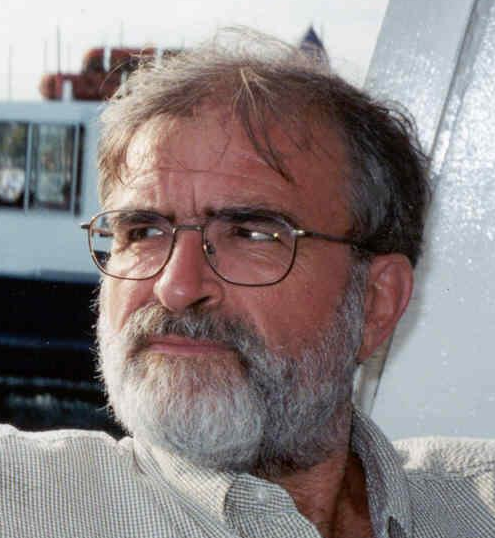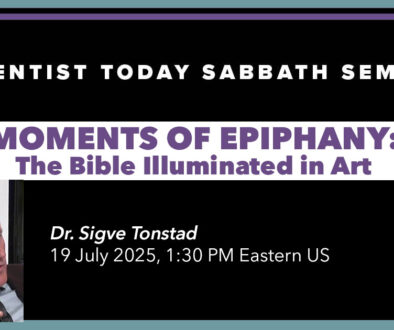SDA Kinship: Meeting Student Needs at Adventist Colleges
by Ronald Lawson, Ph.D. | 21 March 2019 |
After the first Kinship Kampmeeting in 1980, which made Kinship a national organization, many of its leaders, remembering their trials while students at Adventist colleges, felt a strong call to present support and to help create LGBTIQ groups on college campuses. They began with mass mailings to students. We heard that the students who were the first receivers of a mailing also tended to get ribbed by their fellows. It was not until 1986 that the first organization was formed–at Pacific Union College (PUC). Once it was going strongly, I traveled there, where I interviewed all the student participants and also almost all the faculty supporters, as well as the college and church administration there. When the group did not survive the graduation of the initial leadership, and later, as we realized that this was often going to be the pattern in at least most of the early such attempts to organize LGBTIQ students, I wrote an account of my visit and my thoughts on the dynamics of the organization for the Kinship Connection.
The account follows was first published in the Kinship Connection about 1989.
A new awareness of the needs of the gay and lesbian students at Pacific Union College in Northern California has emerged among administrators, faculty, pastoral staff, and the student body over the past two years. One outgrowth of this has been the establishment of a non-judgmental “listening ear” counseling and support system known officially as the “PUC Church Gay and Lesbian Christian Support Network” and colloquially as “The Network.” These amazing results flow directly from the initiative and determined efforts of Steve and Dan, two gay students who met one another through Kinship and became friends in the fall of 1985. I interviewed seven people who have been deeply involved in the Network, and all agreed that the credit belongs with them: “They pressured us until we did it.”
When Dan and Steve compared experiences, they found that their confusion over their gay feelings had driven them to seek counsel from school pastors and counselors who had proved to be ill-informed and able to do little more than give them the phone numbers of “change” ministries. Determining to transform this situation so that gay students coming behind them at PUC would be spared the experiences they had endured, they developed a plan to prepare key people to provide positive counseling to students troubled by guilt or confusion over their sexual feelings.
Their first step was to contact faculty members to seek their backing for their proposed support network. They chose persons who had participated in Kinship Kampmeetings or whose classes and sermons indicated that they were open-minded. They also contacted the pastor of the PUC College Church, Elder Roger Bothwell. All those contacted responded very positively.
At this point, Steve bravely made an appointment with PUC President Malcolm Maxwell, to whom he told his own story and presented the list of faculty who also recognized the importance of responding to the needs of gay students more positively; he then demanded that the school arrange a meeting of interested parties to explore what actions should be taken. Maxwell was initially very wary, warning Steve not to push things too far, for martyrs only live once, and claiming that he did not have time for a meeting. However, our heroes showed their determination by following up this meeting with a series of letters to the president and contacts with the pastor, where they insisted that the issue was not whether homosexuality was right or wrong, but the urgency of meeting the needs of the students. Their efforts finally resulted in some productive meetings in the fall of 1986. Dan and Steve prepared the agendas for both the initial meetings and later committee meetings, and also chaired them. In November 1986, Elder Bothwell announced during a sermon that the church was forming a support group for gays and lesbians, and three months later he used a similar occasion to report that this had been accomplished. Steve and Dan utilized the meetings with the pastor and eight counselors to educate them concerning gays and lesbians and how best to counsel them.
The Network committed itself to provide Christian support and compassion to those struggling with their sexual identities by listening to their problems and accepting them without judgment while exploring the options available to them openly. Students and other church members were encouraged to call the church office, where they were given the number of one of the counselors.
The college administration was skittish concerning the idea because they were afraid that PUC’s proximity to San Francisco would result in its being labelled as a haven for homosexuals. They relaxed more once the PUC Church agreed to become the sponsor of the Network. However, the Church, too, was initially wary, limiting publicity during the first year of the Network’s operation to rather ambiguous verbal announcements in services. In fact, all interviewees reported that the formation and publicizing of the Network had resulted in no flak at all. This emboldened the church staff, so that in December 1987 the pastor sent the college deans an official announcement concerning the Network, and in February 1988 it was advertised in a printed insert within the Church bulletin:
We Understand
Is your sexual identity a confusing thought for you? Does it frighten you to think that you may be all alone with this problem? It helps to talk about it. For understanding, call the NETWORK at the church office, 965-7297. (All calls will be kept completely confidential.)
Elder Bothwell reports that about six students have used the Network since its formation just over a year ago. Both he and the counselors expected higher numbers. Perhaps students are chary about calling the church office concerning such a matter; the limitation of publicity to verbal announcements in church undoubtedly means that many among the large numbers of students who skip church have not heard about the Network; the ambiguity of the advertising also leaves the nature of the counseling unclear, so that students may well be waiting for it to develop a track record they can trust. It is probably unfortunate that the officials have not yet endorsed the concept of an official mutual support group, where gays would help gays – students might well feel more comfortable participating. Because the counselors have gained confidence and compassion in dealing with students with homosexual problems, several report that they have on several occasions been sought out independently by individuals who have sensed that they could be trusted. The evidence suggests that the need for the counseling available through the Network is great: Steve and Dan now know about 10 homosexual students, most of whom are heavily closeted and some of whom are so rejecting of themselves that they are planning to marry heterosexually.
Meanwhile, Dan has become well known as a result of his willingness to make presentations to classes about homosexuality and to discuss this and related issues when they emerge in his own classes. Initially he spoke to the issue without revealing his own orientation; however, since February 1987 he has come out to seven classes. The first of these, a Marriage and the Family class, was rather traumatic, for at least one student broke the rules that had been established and rushed out to spill the beans throughout the campus. Although this resulted in a few crank calls, most of the students, having digested the fact that persistent rumors of the presence of gays on campus had been confirmed, adopted a tolerant attitude. Dan feels that his strategy of coming out in his own classes, where he is already known and appreciated, has been especially successful in breaking down prejudice. Although these presentations were not sponsored by the Network, their impact has been discussed at Network meetings.
Although Steve was also widely assumed to be gay because of his association with Dan, he was successful in being elected to the student senate for this year, running second among four candidates in a race for three positions. He was placed on a committee responsible for college publications, where he has been working to gain the Network publicity.
Dan and Steve attribute their accomplishments to the fact that they have prayed earnestly at every step and kept God at the center – they have had a real sense that God has opened many doors for them. They also planned every move carefully, sometimes staying up all night while they thought through and rehearsed possible responses to questions. They were determined, dedicated and prepared.
What will be the future of the Network? Steve and Dan feel that they have been laying a firm foundation. There is no doubt that they have made a large impact on the understanding and commitment of the counselors with whom they have worked.
Nevertheless, a key factor in the future will be the willingness of other lesbians and gays to follow in their steps and to continue to build this ministry.
Afterward:
The student organization at PUC did not survive the graduation of Steve and Dan, for no other students were willing to take leadership. But the work done with the faculty counselors meant that friendly and committed faculty were known and looking for opportunities to help, and when new students who were ready to be active appeared again, a new organization was formed. This seems to have been the kind of pattern that prevailed initially at every Adventist college in North America.
 Ronald Lawson is a lifelong Seventh-day Adventist, and a sociologist studying urban conflicts and sectarian religions. He is retired from Queens College, CUNY.
Ronald Lawson is a lifelong Seventh-day Adventist, and a sociologist studying urban conflicts and sectarian religions. He is retired from Queens College, CUNY.




